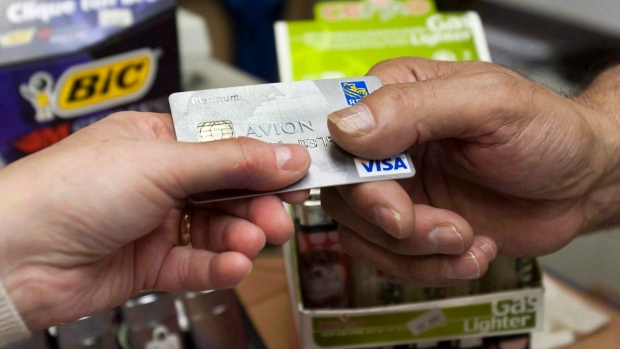Jan 16, 2018
Debt levels in Canada haven’t reached ‘crisis mode’ yet: Former CIBC chair
, BNN Bloomberg

Despite Canadians holding on to record levels of debt, the country is not in “crisis mode” yet, according to one Canadian business leader who says the growing amount of consumer debt shouldn’t be discussed in general terms.
“The debt level cannot be taken [in] absolute [terms]. It needs to be taken relative to the assets that Canadian citizens have at the same time,” Charles Sirois, co-founder and chairman of Pangea and a former CIBC chairman, told BNN in an interview Tuesday.
Sirois put the blame for soaring debt partly on rising home prices and greater levels of home ownership, noting debt levels increase when people buy more expensive homes.
National home prices topped $496,500 in December, up 5.7 per cent from a year earlier, according to the latest data from the Canadian Real Estate Association. Home sales were also up 4.1 per cent on a year-over-year basis for the month.
- Pattie Lovett-Reid: What to do about debt, no matter what the BoC decides
- For Poloz's rate decision, household debt and Fed are front and centre
- One in three Canadians can’t cover bills amid ‘debt trap’: Survey
READ MORE: CANADIAN DEBT LEVELS
Despite higher home costs, Canadians shouldn’t stop worrying about consumption levels, Sirois said.
“Obviously the debt level on the consumption side is something that we should worry about,” he said. “That’s the balance that needs to be achieved.”
“I think it is prudent right now that we should encourage Canadians to reduce the debt level or stabilize it. I don’t think we are in a crisis mode,” he added. “We should be cautious about debt, but we should not be panicking about it.”
Sirois’ comments come a day after a survey released by MNP, conducted by Ipsos, revealed 33 per cent of Canadians can’t cover their basic monthly bills. Almost half (48 per cent) of respondents said they only have a $200-buffer to cover their costs.
The survey was released in time for the Bank of Canada’s next interest rate decision on Wednesday. It is widely expected the bank will raise rates 25 basis points to 1.25 per cent, with the implied probability of a hike sitting at 90 per cent as of Tuesday morning.
Forty-two per cent of respondents to the MNP survey said they would be in financial trouble if rates rise much higher.




